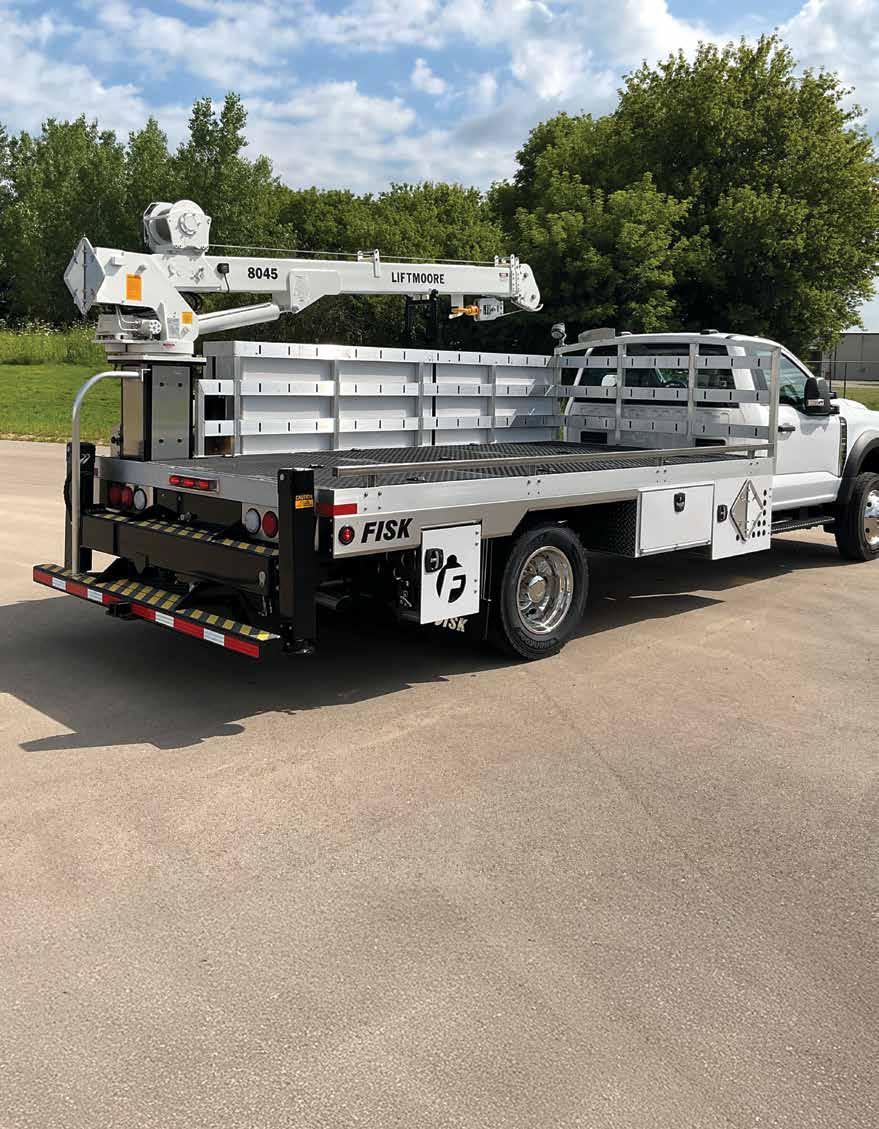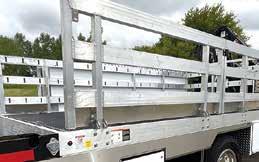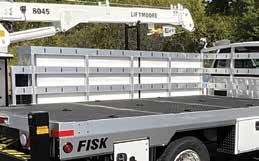to Chill
Changing energy market makes propane-powered cooling technology for commercial & industrial applications a new reality
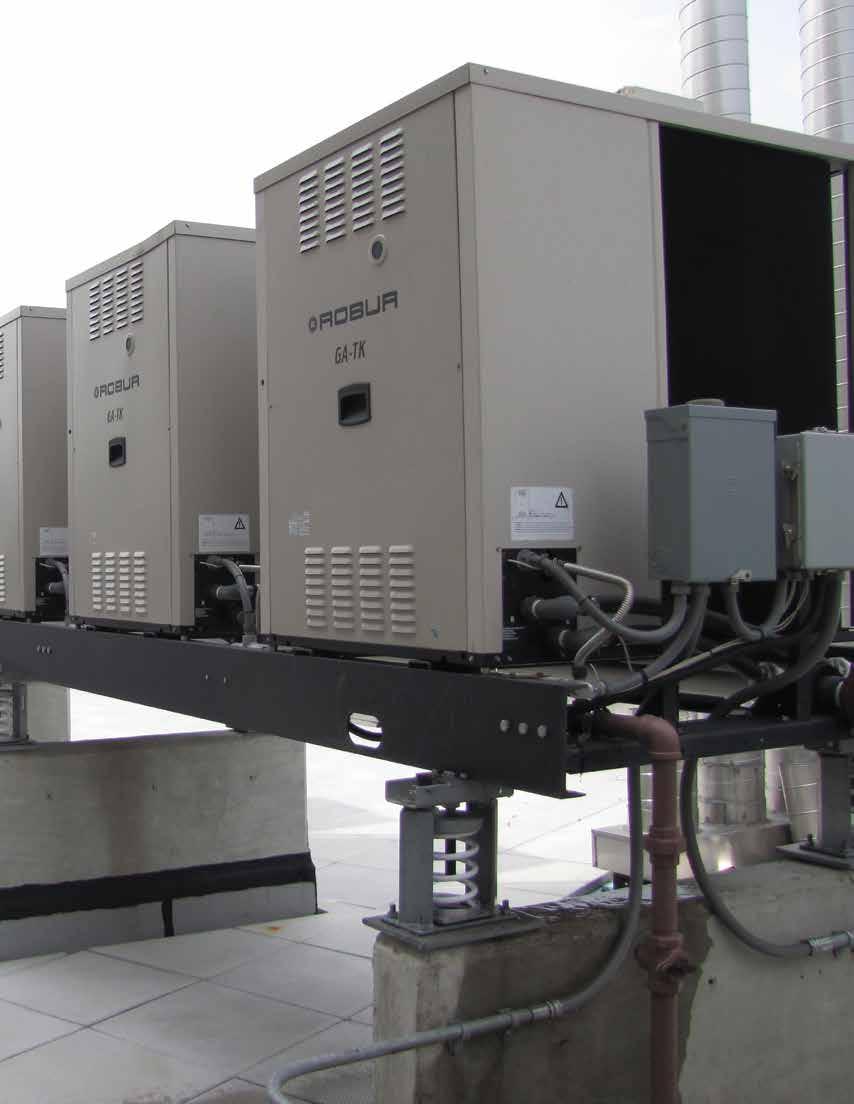
PERC Program Provides Incentives for Cooling & CHP Systems
Propane Sales Forum: Chicago, May 20-21 2025 Energy Predictions Propane and Nuclear on the Rise
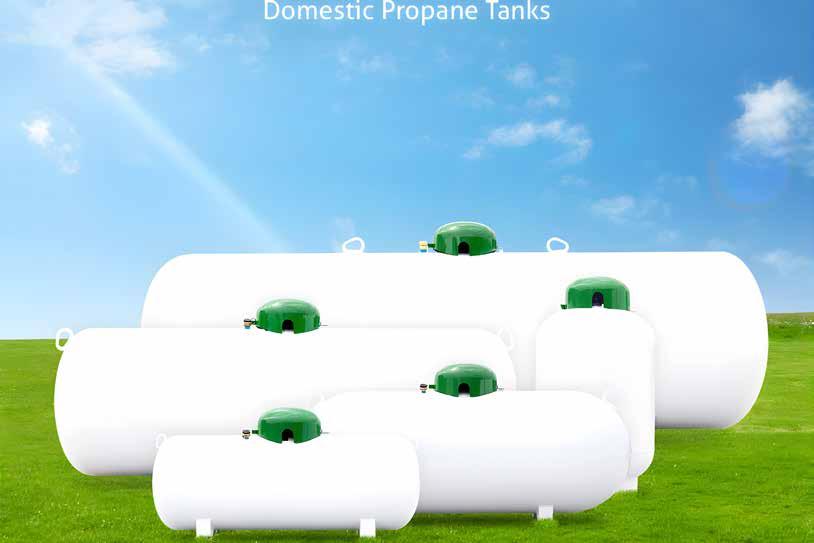
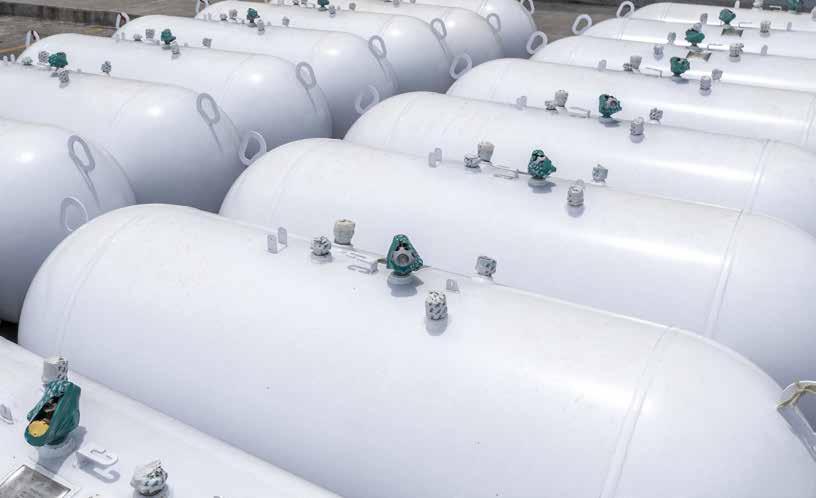



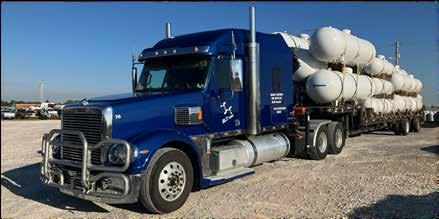
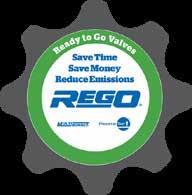



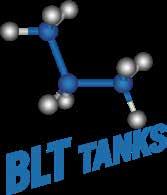







Weekly
Monthly propane price reports (non-heating season) A
Guidance on rules, regulations, codes & laws
State & federal regulatory alerts and updates
State & federal compliance date reminders



Hours of service waiver notifications
Roadside enforcement event announcements
Exclusive access to our Members Only portal on our website
Up to 30% savings through Propane Service Corporation
Special pricing on emergency response numbers, workers' compensation, health insurance, tires, and more
Member-only invitations to quarterly meetings
Texas Propane
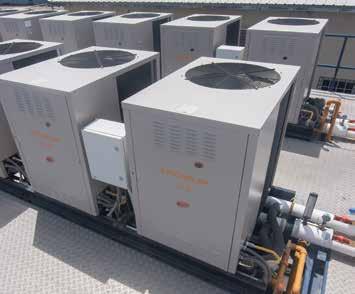



Highlights from Headquarters
Bill Van Hoy
TPGA Executive Director

Welcome spring! While it’s nice to think that we gently move from heating season to cooling season, in reality that shift can sometimes be quite fast. In that vein, we’ve taken a closer look at propane’s role in commercial and industrial cooling systems.
Propane has long been used for cooling, especially in commercial settings. But it’s getting new attention and new looks as the energy grid takes on new load and strain. Propane can not only provide affordable, efficient cool air, but it can also be set up to be off-grid, providing resilience to entities that need the assurance of consistent cooling. Hospitals and data centers can’t just go without cooling.
PERC’s Alternative Technology Demonstration & Research Program (page 16) offers compensation to commercial and industrial businesses who put in propane-powered cooling or CHP systems. If you have a client who might be a good target for a system, there are lots of resources for you to tap. The PERC compensation might help them get over their fears.
The Propane Sales Forum (page 20) is taking place this year in Chicago from May 20-21. It’s designed specifically for people in sales positions in your company. They explore strategies to grow propane sales across multiple industries, including residential, commercial, agriculture, Autogas and material handling.
TCEQ is offering around $16 million in grant funding for fleet owners to replace aging diesel vehicles with new hybrid or alternative fuel vehicles. Grants may reimburse up to 80% of the cost of the qualifying vehicles. Applications are due by March 21, so you’ll have to hurry.
And finally, check out the BurnBot RX2 (page 30). It’s a new tool for wildfire management. Texas is definitely not immune to the challenges of wildfire, and it’s wonderful to see propane being used in such a meaningful way.
Texas Propane
TPGA staff
Bill Van Hoy ................. bvanhoy@txpropane.com Executive Director
Jackie Mason................... jmason@txpropane.com
Education & Marketing Director Regulatory & Sr. Legislative Affairs Director
Julie Novinger...........accountant@txpropane.com Bookkeeper
Propane Service Corporation ................. sales@ propaneservicecorp.com 800-392-0023
Publisher Kim Scheberle ............. kscheberle@austin.rr.com
Account Manager/Managing Editor
Sail House Publishing 512-346-0892
Joanne Pantaze ................. jpantaze@zochnet.com
Advertising Sales 512-273-2639
Kiki Pantaze ....................kpantaze@zochnet.com
Art Director 512-924-7566 8408 North Interstate 35 Austin, TX 78753 512-836-8620 or 800-325-7427 512-834-0758 fax E-mail: info@txpropane.com www.txpropane.com
Basys Processing Lone Star Energy Group Warm Thoughts Communications

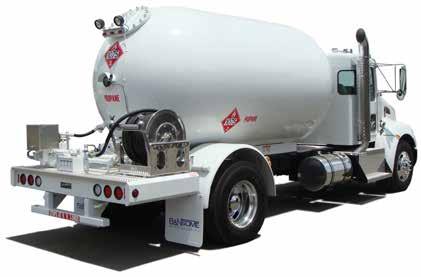







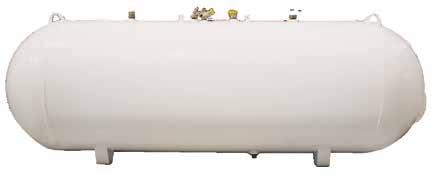

President: Larry Baty, Cadenhead Servis Gas, 972-771-8654
President Elect: Jeremy Gentile, Hill Butane, 409-296-2001
Secretary: Matt Terry, Matador Gas, 210-861-6545
Treasurer/Finance Chair: Bill Collins, Propane Exchange, 214-629-5118
District 1 Director: David Collett, Gas and Supply, 903-780-2488
District 1 Alternate: John Minton, Gas & Supply, 903-490-0605
District 2 Director: Billy Bob McAdams, McAdams Propane, 936-598-7444
District 2 Alternate: Joe January, McAdams Propane, 254-723-4210
District 3 Director: Stephen McClendon, Ferrellgas, 972-730-0469
District 3 Alternate: Open
District 4 Director: Matt Peterson, Buster Brown Propane, 281-689-3946
District 4 Alternate: Garrett Green, Greens's Blue Flame Gas Co. 713-562-5341
District 5 Director: Brody Newton, Busters Propane, 361-852-8161
District 5 Alternate: Regina Betancourt, Ferrellgas, 361-429-8548
District 6 Director: Omar Garcia, Mr. G Propane, 956-581-1063
District 6 Alternate: Alex Hinojosa, Hino Gas Sales, 956-423-9178
District 7 Director: Sharon Seal, Bell Hydrogas, 210-533-7103
District 7 Alternate: Duston Cox, Chaparral Propane, 830-329-0871
District 8 Director: Rodney Sladek, Fayetteville Propane, 979-836-7044
District 8 Alternate: Doyle Fevig, Legacy Propane 830-995-5015
District 9 Director: Brad Quisenberry, Gene Harris Petroleum, 817-295-1091
District 9 Alternate: Larry Hearn, Yellow Rose Propane, 870-648-8241
District 10 Director: Josh Nowlin, McCraw Propane, 903-583-7481
District 10 Alternate: Chad Gregg, Enderby Gas, 940-482-3225
District 11 Director: Steve Adams, Hardwick LPG, 254-647-3402
District 11 Alternate: Anna May Etheredge, Enderby Gas, 940-665-4672
District 12 Director: Laci Jo Stone, Schneider Distributing, 800-901-9109
District 12 Alternate: Shawn Owens, Heart of Texas Propane, 325-313-0748
District 13 Director: Lane Worthington, WTG Fuels, 432-682-4349

District 13 Alternate: Casey King, WTG Fuels, 432-894-4240
District 14 Director: Terry Perez, Perez Propane, 512-318-9780
District 14 Alternate: Elizabeth Perez, Perez Propane, 915-764-3382
District 15 Director: Don Heinrich, Slaton Gas, 806-828-6501
District 15 Alternate: Matt Carr, All Star Fuel, 888-572-0174
District 16 Director: Clay Crist, Crist Fuel, 806-426-3412
District 16 Alternate: Open
Past President: Josh McAdams, McAdams Propane, 936-598-7444
Past President: Mark Peterson, Buster Brown Propane, 281-689-3946
Past President: Jack Walzel, Tri-Co Propane, 254-642-3885
Past President: John Walter, Schneider Distributing, 800-901-9109
Past President: Allen Wells, BayGas, 281-332-2630
Vice President: Steve Adams, Hardwick LPG, 254-647-3402
Vice President: Jeremy Gentile, Hill Butane, 409-296-2001
Vice President: Matt Terry, Matador Gas, 210-861-6545
Sr. Vice President: Todd Dorris, Roadrunner Energy, 830-278-2915
Sr. Vice President: Bill Collins, Propane Exchange, 972-442-1078
Sr. Vice President: Joe Green, Green’s Blue Flame Gas, 713-462-5414
Assoc. Supplier Service Director: Rusty Walker, Marshall Young, 817-645 9155
Assoc. Supplier Service Alternate: Andy Brus, Crum & Forster, 682-220-4812
Assoc. Producer/Marketing Gas Director: Jim Fulton, 4JEnergy, 832-529-4768
Assoc. Producer/Marketing Gas Alternate: John Becraft, Targa Resources, 713-594-7485
Assoc. Manufacturer/Distributor Director: Joe Ezernack, Meeder Equipment, 903-877-9401
Assoc. Manufacturer/Distributor Alternate: Troy Hicks, Squibb Taylor, 915-613-7534
Assoc. At Large Director: Crystelle Markley, Superior Energy Systems, 512-944-4177
Assoc. At Large Alternate: Jimmie Grant, Martin Gas Sales, 713-851-6155
Nominating Chair: John Walter, Schneider Distributing, 800-901-9109
NPGA Director: Mark Garrison, Allstar Fuel, 806-296-6353






























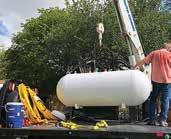
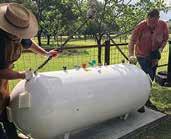
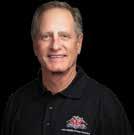

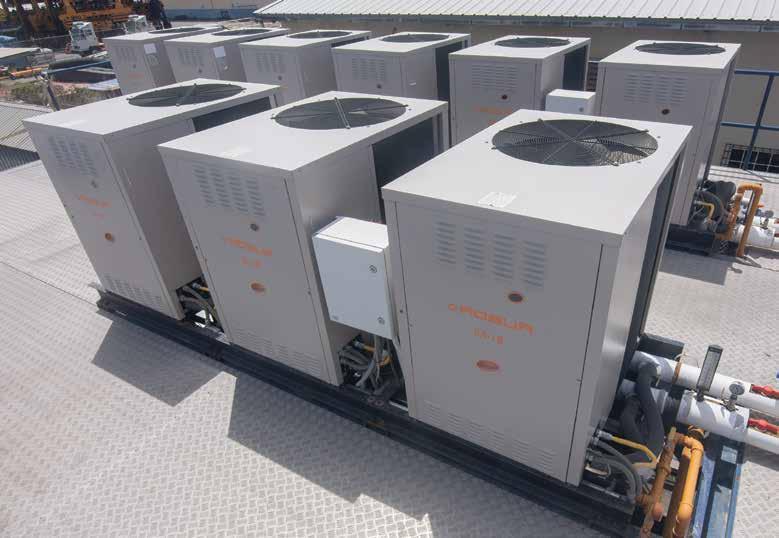
Propane’s Time to Chill
Changing energy needs make propane-powered cooling technology for commercial, industrial applications a new reality
It is common knowledge that propane is the perfect fuel for providing heat. It’s clean, efficient, and cost effective. But those same qualities can be applied in equal measure to cooling. Propane-powered cooling for commercial and industrial applications is one technology that is picking up traction as the world around us changes.

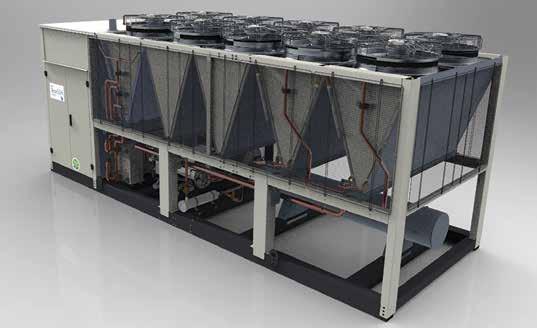
Warner says the cooling technology hasn’t changed all that much, but the efficiency of the systems has improved. “The ability to utilize waste heat to generate power has opened things up,” he said.
“With everything going on with the world and the amount of pressure we’re putting on the grid, our need for more and more power has opened people’s eyes that there’s some alternative methods to offer some grid release,” said Bert Warner, PERC’s Director of Commercial Business Development.
“Cooling is a hungry monster.”
The technology of propane cooling is the same as other systems and has been used for decades — it’s simply the fuel used to engage the compressor or ignite the gas burner that is different. Propane cooling systems are readily available on the market today in sizes ranging from 5 to 400 tons. They have numerous end uses, from building air conditioning to process cooling to refrigeration, and operate well in a wide range of ambient conditions, providing the flexibility of gas cooling systems in various climates and environments.
Why Now
Increased electric power demand puts significant stress on our already-overworked grid infrastructure. One way to alleviate strain on the grid is for cooling applications to use propane instead of electricity. Propane cooling systems significantly reduce electricity requirements, making them ideal in areas with high electric rates and limited infrastructure.
Cooling systems can either be connected to a CHP (Combined Heat and Power) system, or as a stand-alone piece.
Europe is farther ahead in adopting propane and gaspowered cooling units. In Europe, they use R290 refrigerant for residential air conditioning. “Part of this is just energy is harder to come by in Europe,” Warner said. “And part of it is they are just a little more forward thinking.”
“Ten years ago, here in the United States, people weren’t thinking about changing systems that worked fine. I think [our country’s] approach is to not fix things that aren’t broken.”
“But the world has changed pretty fast, and the need for resilience has escalated quickly. Our grid feels much more vulnerable today.”
How Propane Cooling Works –Mechanical vs. Thermal Process
There are two types of propane or gas cooling systems: enginedriven and absorption. A typical electric air conditioning system uses an electric motor to engage a compressor to pump refrigerant, while a gas-driven system uses a propane engine to engage the compressor. The remainder of the cooling process is the same, except propane is the primary energy used to start the process rather than electricity. This is a mechanical process.
There are two types of gas cooling systems: (LEFT) a mechanical (engine driven) system, and (RIGHT) a thermal (absorption) system.
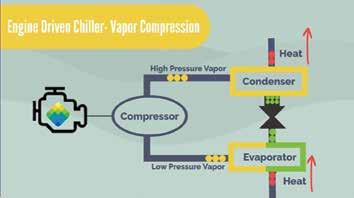
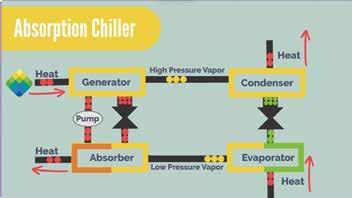
Absorption, on the other hand, is a thermal process. An absorption cooling system uses a gas burner to ignite then heat a solution of water and ammonia. The ammonia has a lower boiling point so it boils off and becomes high-pressure water vapor. In this scenario, chilled water is used for cooling rather than a refrigerant. Engine-driven systems typically have larger tonnages and are used in commercial buildings.
Very little electricity is required of these processes, which both provide grid relief, energy independence, and resiliency. Propane cooling reduces a facility’s HVAC electricity consumption by 80%-90%.
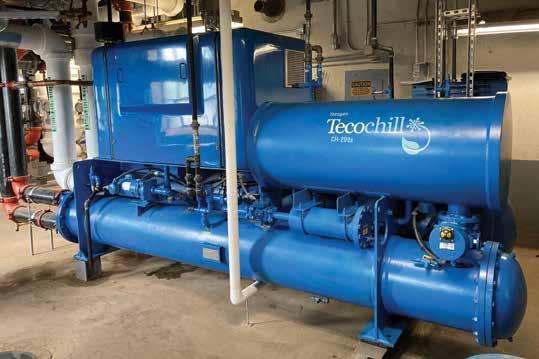
Warner says that the two different kinds of cooling methods don’t necessarily have distinct market applications. “There are a lot of ammonia [thermal/absorption] systems that are very large, like a dairy farm or a hockey rink, or large industrial sites, but conversely you could put in a small ammonia system.”
“It’s really based on the size of what you need, the economics, and even the footprint of the space you have. Sometimes a grouping of mechanical units might be what a client desires for resiliency and cost, and sometimes, that may take more space than they have.”
Commercial and Industrial Applications for Propane Cooling
Because of rising temperatures, air conditioning is now a necessity in many commercial buildings and regions that didn’t typically have large cooling loads. When building owners want to add cooling to schools, churches, offices, assisted living facilities, multifamily residences, healthcare, hospitality, or restaurants but don’t have the electric load to handle it, propane cooling steps in. In many regions, it is more economical to incorporate a propane tank and propane cooling system because it does not require large capital infrastructure upgrades to the electrical panel or substation.
Warner, who lives in Rhode Island, experienced some of this stress from the grid firsthand. “My house did not have air conditioning because we were close to the water. But
I’m a Midwestern boy, and I thought it was crazy to think you could have a home without air conditioning.”
“If I wanted to put electric air conditioning into that house, I would have to upgrade my entire electric panel because there was not enough power to add cooling to the house.”
“That’s happening in a lot of places. Not just in residential, but commercial as well,” Warner said. “And we’re now charging cars, and there’s the demand for energy from AI and crypto mining. We’re just seeing so much need for more electricity. It’s going to continue to grow.”
In the past, propane cooling was primarily used in greenhouses due to its efficient dehumidification, but there are many other applications for process cooling, particularly in remote areas. Large scale propane cooling installations can include wineries, distilleries, breweries, and indoor agriculture projects.

Performance Across Industries
With today’s energy outlook and demands, propane cooling is a viable solution for many commercial applications. Because propane cooling systems significantly reduce electricity requirements, they are ideal in areas with high electric rates and limited infrastructure. The most common building types for propane cooling include:
Other businesses have equipment that must be cooled, such as server rooms, commercial printing facilities, dry cleaning facilities, and MRI machines in hospitals, among others. Industrial and commercial applications such as these require a great deal of process cooling and the resulting electric rates can be astronomical. Propane cooling, on the other hand, offers market-specific operational cost savings.
An added bonus is that in large commercial systems, multiple units can operate independently, which provides redundancy if one unit goes down. This is especially vital for commercial businesses that will lose profit if operations are interrupted or equipment is damaged. There are also options to recover hot water from the cooling process and reuse it in process applications. Instead of having two pieces of equipment, such as a furnace or boiler and air conditioner, you can have one system that does both.
Where Do Marketers Fit In
There are three manufacturers listed on PERCs site that marketers can reach out to for more information or to work with if you have a customer considering propane cooling.
“These aren’t the only three offering cooling systems,” Warner said. “You may have someone locally you have done business with in the past, and that’s great.”
The three are TecoGen (www.tecogen.com), Blue Mountain Energy (www.bluemountainenergy.com/) and Robur (www.robur.com).
Tecogen’s chillers can provide from 100 to 400 tons of cooling capacity. “They do the industrial or heavy commercial facilities where you have very large demand,” Warner said.
Blue Mountain Energy provides units in 8 and 15-ton sizes. Their propane engine driven equipment is used in the commercial space where multiple units can be added together to meet the capacity of the building.
The Advantages of Propane Cooling
COOLING PROVIDES EXCEPTIONAL BENEFITS WITHOUT COMPROMISING FACILITY PERFORMANCE

Robur provides units for the residential and commercial segments. Their absorption units are available in modular, 5-ton increments so redundancy and resiliency are built in.


“We built the landing page on propane.com so that marketers could reach out to manufacturers about these technologies. We want them to connect with each other."
Warner says that marketers should also be aware of incentives PERC offers to clients installing cooling technology (see page 16 for details). The program offers $300 a ton for the incentive, which can add up. “I mean, let’s be real,” Warner laughed. “Money kind of eases anxiety when trying something new.”
Who’s a Target?
“I think first you have to consider economics. Who pays high electric bills. Who gets their bill in July and does a double-take,” Warner said. “Second, we’ve seen greater adoption where there are infrastructure challenges. For instance, they’ve tapped out on electric capacity, and they will have to add another substation to meet needs.”
“Third would be places that are very prone to power outages. For instance coastal areas that are hit by hurricanes.”
Warner says places in the South, like Texas, are probably better targets than up north. “While folks in Minnesota might like cooling, if they only need the unit six months of the year, there’s not a great return on investment.”In Texas, where the cooling season is much more extended and can often extend from March to November, the economics make better sense.
Warner points to a few recent projects as good fits: an apartment building in Maine, an office building in Miami, and a horse ranch here in Texas.
LOOKING FOR A DRIVER OR TECHNICIAN?
PROFESSIONALS
“Also, places that need process cooling are great targets,” Warner said. “Places like dry cleaners or laundromats or any place where machinery generates a lot of heat that needs to be controlled.”
Resources for Marketers
PERC has put together a variety of tools to educate you and your customers about how propane cooling systems work and where to go for more information.
The landing page at https://propane.com/propane-coolingsystems/ will get you to Propane Cooling Brochure, Propane Cooling 101, an article on how a cannabis grower is using their propane chillers, the application for The Alternative Technology Demonstration & Research Program, and links to three manufacturers that are prominent in the business nationally.
For information on The Alternative Technology Demonstration & Research Program Incentive Program, go to https://propane. com/alttech/.
Warner advises that just because the idea of propane cooling might be new to you, don’t let that stop you from spreading the word.
“This technology has been in play for a long time. Most of these larger installations have used natural gas in the past. But there’s absolutely no reason we shouldn’t be pushing propane instead. It’s clean, it’s economical, and it’s resilient. As the world’s power needs change, local business leaders and their wants and needs change too.”

Alternative Technology Demonstration & Research Program: Incentives for Commercial & Industrial Clients
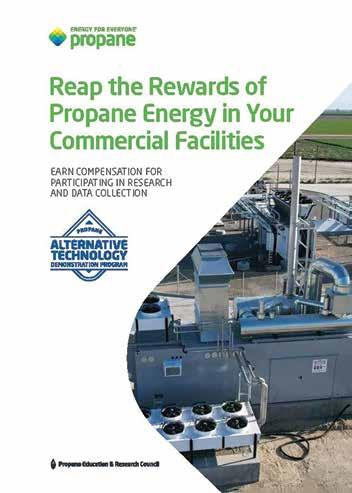
The new Alternative Technology Demonstration & Research Program, sponsored by the Propane Education & Research Council (PERC), offers commercial and industrial businesses the opportunity to earn compensation by contributing valuable data on propane-powered cooling and combined heat and power (CHP) systems.
This program is designed to gather insights on propane use in the commercial building sector. Participants are required to complete a survey detailing performance, emissions, gallon usage, run hours, cost data, and energy savings after installing propane CHP or cooling equipment. By participating, businesses not only benefit from advanced energy solutions, but they also play a pivotal role in shaping the future of propane technology.
Qualifying Equipment
Eligible equipment must be:
• Fully certified (CSA, UL, ETL)
• Commercially available
• Installed in a U.S. commercial facility
Participant Requirements
Applicants must:
• Be a commercial business
• Be 18+ years old and provide a W9
• Be a propane customer in good standing
• Share data on system performance and energy use
• Allow site visits and potential marketing features
Compensation
Propane CHP
• $12,000 – Sites under 15 kW (e.g., small restaurants, clinics, server rooms)
• $30,000 – Sites over 15 kW (e.g., industrial, multifamily, hotels, data centers)
Propane Cooling
• $300/ton – 5T to 100T+ systems
• Propane Robur ACF (standard or special versions) and get $300/unit rebate (Robur rebate is in addition to PERC program.)
• Propane Robur GAHP AR and get $500/unit rebate (Robur rebate is in addition to PERC program.)
Application Process
1. Apply – Visit Propane.com/AltTech
2. Review – PERC evaluates applications based on data collection ability and site criteria
3. Approval & Installation – Work with a propane supplier and contractors to install equipment
4. Compensation – Submit proof of purchase and installation to receive funding
Key Program Notes
• Not a rebate program – Limited funding is available
• Eligibility is not guaranteed, even if criteria are met
• Selection factors include data recording ability, site location, and business type
For questions, call PERC at 202-452-8975. Apply early— funding is limited!
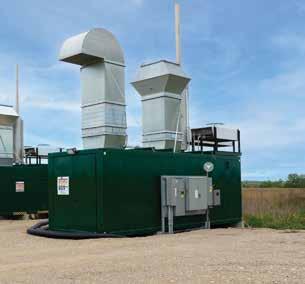
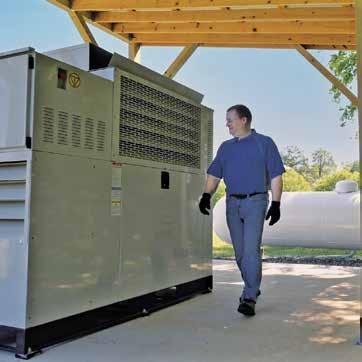
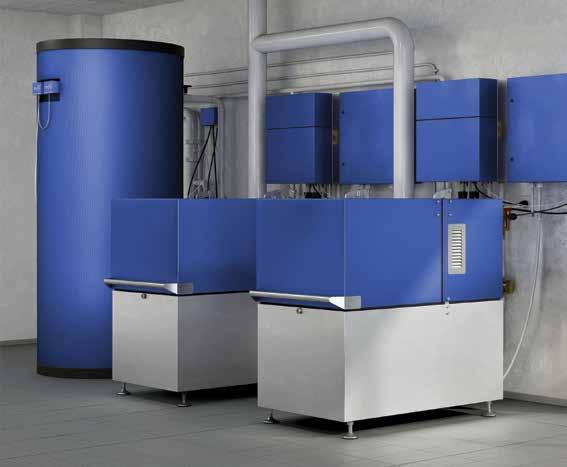

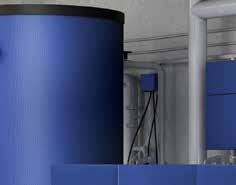
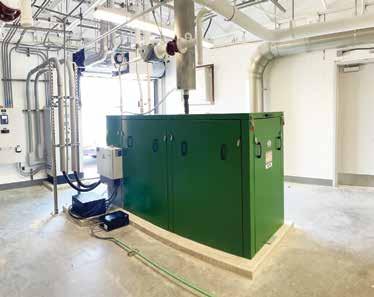
Transforming Commercial Facilities with Combined Heat and Power (CHP) Systems
More than 4,400 facilities across the U.S. already depend on CHP systems to e ciently produce electricity while capturing and utilizing the heat for their operations. These systems deliver cost-e ective, environmentally friendly energy that is reliable, even during grid outages. Now, through PERC’s Alternative Technology Demonstration & Research Program, facilities looking to maximize their energy potential can earn compensation for adopting CHP systems in exchange for sharing real-world performance data with PERC.
CHP TRAINING MODULE AT THE LEARNING CENTER
Get an in-depth look at CHP technology and discover how building strategic partnerships with the right people and organizations can help you identify and connect with potential CHP customers.
Managing Employee Social Media Use and Entertainment Consumption in the Workplace

In today’s digital age, social media and entertainment consumption, such as watching television or movies during work hours, have become common workplace distractions. For propane company owners in Texas, addressing these issues effectively can boost productivity and ensure a focused work environment. While Texas law does not specifically regulate workplace social media usage or personal entertainment habits, employers have the right to set policies that manage these behaviors during work hours.
Understanding Texas Laws on Workplace Behavior
Texas is an at-will employment state,
meaning employers can set and enforce workplace policies as long as they do not violate anti-discrimination laws. There are no specific Texas statutes that prevent employers from restricting social media use or personal entertainment during work hours. However, employers must be careful when disciplining employees for social media activity outside of work, particularly regarding discussions on wages, working conditions, or legally protected speech.
Addressing Social Media and Entertainment Distractions
To maintain workplace efficiency, propane companies can implement clear policies on
the use of social media and personal entertainment. Consider the following strategies:
1. Define Acceptable Use – Specify when, where, and how employees may use social media, personal devices, or streaming services at work.
2. Restrict Non-Work-Related Entertainment – Clearly outline that watching television, movies, or streaming content is prohibited during work hours unless explicitly required for a job-related task.
3. Limit Device Usage – Restrict personal device use during working hours, except for emergencies or designated break times.
4. Encourage Productivity – Set
guidelines that focus on productivity while allowing reasonable personal use during breaks or lunch periods.
5. Implement Monitoring Policies –Inform employees if internet usage will be monitored and what disciplinary actions may be taken for excessive non-work-related activity.
Sample Social Media and Entertainment Policy
Company Policy on Social Media, TV, and Personal Entertainment
At [Company Name], we recognize that social media and personal entertainment are a part of modern life. However, to maintain a productive and professional work environment, we have established the following guidelines:
1. Social Media Usage:
• Personal social media use should be limited to break periods and nonwork hours.
• Employees must not use company devices, networks, or resources for excessive personal social media activity.
• Employees must avoid posting company-related content without prior approval to ensure confidentiality and professionalism.
• Any online behavior that violates company policies on harassment, discrimination, or workplace ethics may result in disciplinary action.
2. Personal Entertainment (TV, Movies, Streaming, etc.):
• Watching television, movies, or streaming content during work hours is not permitted unless directly related to work duties.
• Personal entertainment devices (such as tablets or mobile phones) should not be used during work hours except during designated breaks.
• Any use of personal entertainment that disrupts workplace productivity will be addressed through appropriate disciplinary measures.
3. General Technology Use:
• Employees should use company resources, including internet and WiFi, primarily for work-related tasks.
• Excessive non-work-related browsing, gaming, or video streaming on
company computers is not allowed.
• The company reserves the right to monitor workplace internet activity and take corrective action if necessary.
4. Disciplinary Actions:
• Failure to comply with this policy may result in verbal or written warnings.
• Repeated violations may lead to suspension or termination, depending on the severity of the infraction.
By setting clear expectations regarding social media use and personal entertainment, propane business owners can create a work environment that minimizes distractions while maintaining a fair balance. A well-defined social media policy helps ensure that employees remain engaged and productive while preventing potential workplace conflicts or legal concerns. Implementing these measures will ultimately support both business efficiency and a professional workplace culture.
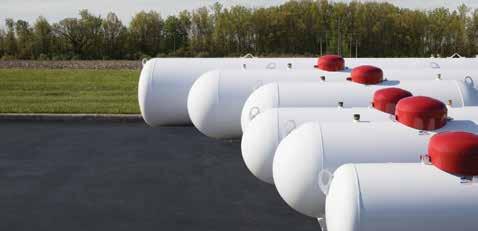

and
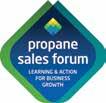
Calling All Propane Sales Professionals!
Propane Sales Forum: Chicago



Register to join PERC on May 20-21 in Chicago!
Designed specifically and exclusively for propane marketers in a sales position in their company, the Propane Sales Forum hosted by the Propane Education & Research Council (PERC) will equip attendees with innovative strategies and actionable insights from industry leaders.
Participants will leave with ready-to-use deliverables, including product catalogs, presentations for meetings with key decisionmakers, and guides for placing propane products in their markets.
Propane Sales Forum Overview: Explore strategies to grow propane sales across multiple industries including residential, commercial, agriculture, autogas, & material handling.
Agenda

Tuesday, May 20 - 11:15 AM Sessions*
Please Select Harvesting Growth: Guiding Farmers from Diesel to Propane Funding Propane Innovations: Grant Writing for Propane Equipment Success From Sizing to Selling: Generator Sizing & the Heat Pump Helper for Homes

Tuesday, May 20 - 2:40 PM Sessions*
Please Select Working with ESCOs: A Roadmap for Propane Market Expansion Autogas Advantage: Drive Your Message Home with Fleet Managers. Propane in Every Home: Tapping into the Manufactured & Modular Housing Market

Tuesday, May 20 - 3:50 PM Sessions*
Please Select Cutting Emissions and Grass: Marketing Propane Off-Road Mowers Optimizing Commercial Spaces: CHPs & Propane Cooling Cargo Conversations: Winning Strategies for Influencing Port Decision Makers

Wednesday, May 21 - 9:00 AM Sessions*
Please Select Rent, Return, Repeat: Driving Demand for Propane-Powered Rental Equipment Driving Profits: Propane Solutions for Corporate Fleets Fueling Success Together: Building Strong Propane Partnerships with Trade Allies

Wednesday, May 21 -10:15 AM Sessions*
Registration
Attendees will be able to customize their Sales Forum agenda by selecting from a variety of sessions on the markets above.
The registration fee is $99.
Learn more and register at https://propane.com/propanesales-forum/
Hotel Information
PERC has secured a room block for attendees at a rate of $299/night. The room block will close on April 20th. Visit https://book.passkey.com/ event/50873926/owner/1461/home to book your rooms!
The Swissotel Chicago is located approximately 40 minutes from Chicago Midway International Airport (MDW) and 60 minutes from Chicago O’Hare International Airport (ORD).
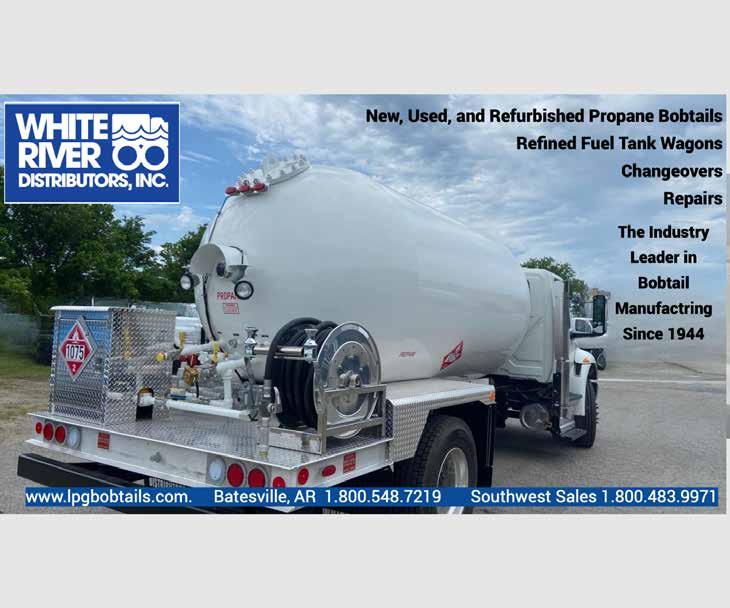
2025 Energy Predictions
Propane and Nuclear on the Rise as AI Creates More Demand for Power
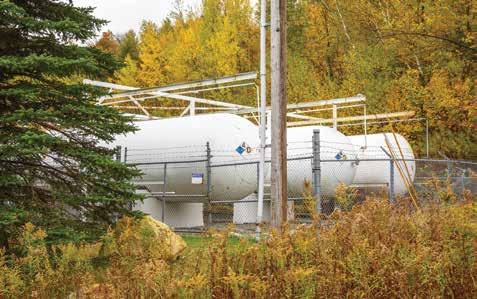
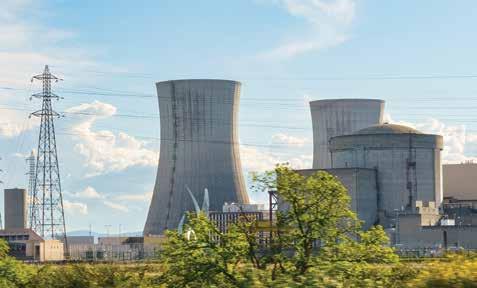
Albert Einstein is quoted as saying,“I never think of the future – it comes soon enough.” It’s a little hard to believe that a time-traveling genius like Einstein never thought about the future, but the quote provides a subtle caution about making predictions—they’re tough to get right. Like the West called to the pioneers, though, the future attracts speculation. It’s certain to happen but is not set. That makes it irresistible to talk about, especially since the 2025 energy horizon is not as foggy as it has been in past years.
The most obvious trend in motion for the
year ahead is that artificial intelligence (AI) and the power demands it puts on the grid will be the tectonic force that shapes energy consumption. Data centers eat up unfathomable amounts of energy. Each of the estimated 1 billion ChatGPT queries made every day takes 2.9 watt-hours—ten times more than the 0.3 watt-hours required by each of the 5.6 billion traditional Google searches that happen every day. In fact, if the growth in data centers meets expectations, we’re going to need to add the equivalent of three New York Cities’ worth of power sup-
ply in the next 5 years.
How does this shape the energy future? It’s already happening.
This past September, Constellation Energy entered into a 20-year power contract with Microsoft to restart the Unit 1 reactor at Three Mile Island nuclear power plant in Pennsylvania. The plant, to be named the Crane Clean Energy Center, will restart in the first quarter of 2025. Crane is a harbinger of things to come. If all goes as planned, don’t be surprised to see a dozen or more new nuclear power plant announcements in the year to come. There’s a twist – these new nuclear facilities will be funded by corporations, not the government.
Watch for two subsequent developments: 1. Calls for, and progress made on, substantially streamlined permitting for nuclear plants and 2. Small modular nuclear reactors (SMNRs) cooled by sodium becoming the design of choice. Sodium operates at higher temperatures and lower pressures than current light water-cooled reactors, improving the efficiency and safety of the system.
2025 will be the year we declare victory for those who have championed an “all of the above” or “wide path” energy philosophy. The wide path is the central theme of Tucker Perkins’ book, Path to Zero, and it will be the tide upon which many other energy sources will ride, including:
Wind and solar. These stay at the energy table in 2025, but they won’t get the spotlight they’ve had in the past. Intermittency and local permitting stalled by not-in-my-backyard protests will slow deployment of these renewables. That said, advances in solar technology such as chemical bonding, photocatalysis and heterojunctions, will take solar energy capture to a new level of efficiency in 2025.
A little more hydrogen. Hydrogen got a lot of attention in 2024. It will take a back seat in the year ahead but find some spotlight in an announcement or two from electric power generators who will roll out plans for an eventual switch-over from natural gas to hydrogen.
A little more geothermal. Geothermal meets less than 1% of global energy demand today but will continue to grow incrementally in the year ahead, especially in places like
Texas where horizontal drilling and hydraulic fracturing technology has been perfected. Its fan base will grow because it’s firm, clean and now, cost-effective.
A LOT more propane and renewable propane. As regulators continue to tighten CO2 and air quality emission standards, low carbon intensity renewable propane will displace more and more diesel as new medium- and heavy-duty truck engine technology finally comes online. Renewable propane capacity will grow beyond 70 million gallons in the year ahead.
Additionally, propane installations will
grow into the power generation energy of choice as property owners invest in off-grid resiliency systems including home and small commercial generators and high-efficiency, signal-sensitive, heat pumps. Both will be smarter, switching on not just when the grid blacks out, but when grid power demand (and pricing) is high.
What won’t change in 2025? Progress. Everything about the energy system will continue to evolve, from its sources to the ways consumers use energy to empower their lives.
Article courtesy of PERC, propane.com.

ur dedication to superior ser vice and unmatched
y has propelled us to the foref ront of our industr y. Enhance your equipment today with our cu tting-
at American S tandard!

Texas Clean Fleet Program (TCFP)
Grant Application Round Closing Soon
The Texas Commission on Environmental Quality (TCEQ) is offering approximately $16 million in grant funding for fleet owners in Texas to replace aging diesel vehicles with new hybrid or alternative fuel vehicles. Grants may reimburse up to 80% of the cost of new qualifying vehicles.
Eligibility Requirements Who Can Apply?
Grants are available for entities that:
• Own and operate a fleet of 75 or more on-road vehicles in Texas.
• Apply to replace at least 10 of those vehicles with new hybrid or alternative fuel vehicles powered by propane or other alternative fuels.
Eligible Projects
• Each application must include a minimum of 10 vehicles for replacement.
• Vehicles being replaced must be on-road, heavy-duty, or light-duty diesel vehicles.
• New replacement vehicles must:
• Be in the same weight classification as the vehicle being replaced.
• Be powered by an alternative fuel or hybrid system.
• Be certified to emit at least 25% less nitrogen oxides (NOX) than the vehicle being replaced, based on federal emissions standards or TCEQ’s baseline emissions level (refer to the Technical Supplement for details).
Eligible Areas
Application Deadline & Funding
Applications will be accepted until 5:00 p.m. Central Time on March 21, 2025. Applicants may request reimbursement for up to 80% of the incremental cost (total eligible cost) associated with purchasing a new hybrid or alternative fuel vehicle.
Grant Evaluation Criteria
Applications will be scored based on:
• Cost per ton of NOX reduced
• Total NOX reductions
• Total NOX reductions in ozone nonattainment areas
Grant Writing Assistance
Our grant writing partner, the American Energy Institute, can assist fleets interested in applying. Contact Heather Ball at:
• heather@americanenergyinstitute.com
• 512-484-8535
Where to Apply & More Information
TCFP Grant documents are available on the TCFP webpage at https://www. tceq.texas.gov/airquality/terp/tcf.html. Have questions? Contact 800-919TERP (8377) or email terp@tceq.texas.gov.


• You will receive good old fashioned customer service.
• You will be educated about your policy coverages and shown where you might be vulnerable.
• You will receive multiple options for your insurance


Inside the Industry
PERC Showcased Propane’s Versatility at PowerGen International
The Propane Education & Research Council (PERC) highlighted propane’s flexibility in power generation at PowerGen International, held Feb. 11-13, in Dallas, Texas. The booth featured products from five companies, all powered by propane.
Guascor Energy showcased its G-18SL engine, an 18-liter unit designed for large-scale power applications such as municipal buildings and military bases. The company aimed to introduce the engine to the U.S. market.
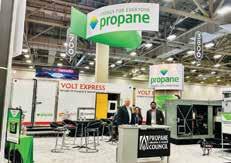
Power Solutions International (PSI) displayed an engine from its lineup, known for reliability in standby and prime power applications. “[PSI has] been a mainstay for propane engine manufacturing for a long time,” said Bert Warner, PERC’s director of Commercial Business Development.
The booth also featured the Wildcat Power Roughneck generator and the Eco Power Equipment CIPR-25K towable generator, designed for clean onsite power at commercial construction sites.
A mobile integrated EV charging and combined heat and power (CHP) system from Volt Express was another highlight. The trailer-mounted unit can fully charge light-duty commercial EVs in 40 minutes and provide power during outages, at remote sites, and special events.
“Propane has a strong position in the generator market,” Warner noted, emphasizing its cost-effectiveness, lower maintenance needs, and environmental benefits compared to diesel.
PERC also promoted its new Alternative Technology Demonstration & Research Program, reinforcing propane’s role in advancing clean energy solutions.
In Memoriam

Joseph William (Bill) Love Jr. of Galveston, formerly of Houston, passed away on January 24 at the age of 96, after a long battle with Parkinson’s Disease. After moving to Houston in 1956, Bill began a career with Union Texas Petroleum, holding various management positions during his 28 years with UTP. Bill moved back to Houston in 1987 and founded “The Propane Market Strategy Letter,” which he published until 1996 when he sold it. Our thoughts are with his family.

Clyde Monroe Maass, 77, of Giddings passed away at home on January 31 with his family by his side. He graduated from Giddings High School in 1966, the same year he began driving a delivery truck for the family business, Maass Butane, which he and his brother Ray would later own and operate. Clyde and his wife, Becky, were graciously blessed with a son, Justin. He was always eager to fish, hunt, or rope with his son and was so proud of him. Our thoughts are with his family.

Clyde Irby Ray Jr. passed away on January 31 at the age of 85. While living in Lake Jackson, he worked for Charles Martin Petroleum as an inspector. In 1969, he moved his family to Jacksonville. He worked for Automatic Gas Company for 36 years, and under his management, it became the largest propane company in the immediate area. He was selfless and never asked an employee to do something he was not willing to do himself. Our thoughts are with his family.
2024 Annual Retail Sales Reporting Open
Each year, 20% of the Propane Education & Research Council (PERC) budget is redistributed to state propane organizations based on the percentage of total gallons sold in each state. Your reporting will affect the funding available for Propane Council of Texas programs—like calendars, consumer newsletters, duty to warn, propane firefighter training, homebuilder outreach, plumber education, and workforce recruitment.
By participating in the Annual Retail Sales Report, you help ensure accurate state allocations and maximize the grant funds available to Texas.
Key Reporting Details:
Reporting Period: March 1 – May 31, 2025
Submit Your Report at: www.propane. com/salesreport
Only one person per company is responsible for submitting the report. If you need to update your designated reporter or request access, email salesreport@ propane.com.
Your participation matters!
Save the Date: May 2025 TPGA Board

Tuesday, May 20, 2025
Committee Meetings, Supplier Elections & Dinner
Wednesday, May 21, 2025
TPGA Board Meeting
Location:
Holiday Inn Austin-Town Lake 20 North IH-35
Austin, TX 78701
All TPGA members are welcome. Watch for more in upcoming weeks at http://www.txpropane.com

Jeff Nelson, Nelson Propane; Texas Ag Commissioner Sid Miller; TPGA Sr. Legislative & Regulatory Affairs Director Jackie Mason; TPGA Executive Director Bill Van Hoy; and TPGA Legal Counsel Leonard Smith.
The Texas Propane Gas Association (TPGA) recently met with Texas Department of Agriculture (TDA) Commissioner Sid Miller and representatives from the Weights & Measures Division to discuss a propanerelated matter.
Commissioner Miller reaffirmed his support for the propane industry, and TDA is actively working with TPGA to address the issue. The meeting was productive, and both organizations are collaborating on a resolution.
TPGA will continue to engage with TDA and provide updates as progress is made.














Classifieds

Garrett Insurance Agency, Inc Formerly, Southern Star Insurance Agency, Inc
Cecil Joiner, Risk Manager cecil@garrettinsurance.com 936-756-2222 www.garrettinsurance.com
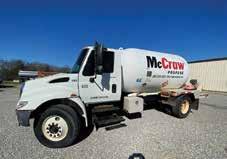
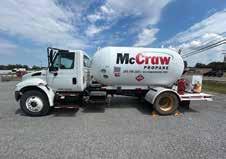
PetroStar Equipment Resources Purchase & Sale Pre-Owned Propane Tanks

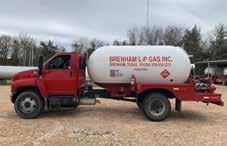
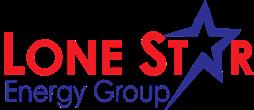




CALENDAR
MARCH
Texas Natural Gas Vehicle Grant Program (TNGVGP) Deadline
4-5
TPGA March Board & Committee Meetings San Antonio, TX 9-12
OPIS NGL Summit Charlotte Harbor, FL 10-12
NPGA Spring Technology, Standards & Safety Committee Meeting Greenville, SC
10-14
Category E Class Week I
13-14
NPGA Benchmarking Spring Meeting Tucson, AZ
24-28 Category E Class Week II
PERC Council Meeting Charlotte, NC
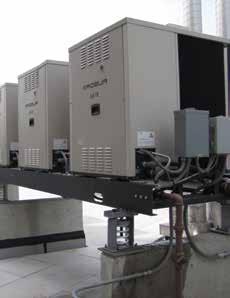
2025 Southeastern Propane Expo Charlotte, NC 18
TPGA Closed for Good Friday
PERC Spring Advisory Committee Meeting Kansas City, MO 12-16
Western Propane Convention and Trade Show Reno, Nevada 20-21
TPGA Board & Committee Meetings Austin, TX
20-21
2025 Propane Sales Forum Chicago, IL 26
TPGA Closed for Memorial Day
PROPANE with PURPOSE
BurnBot Provides Propane Powered Controlled Burns
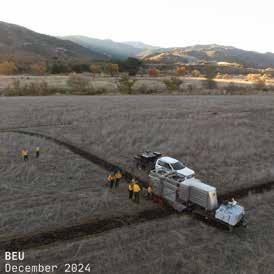
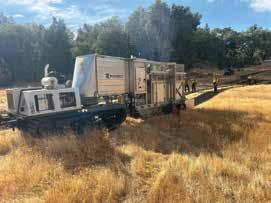
Wildfire management is top of brain for everyone. The Los Angeles fires in January showed the world how fire mixed with high winds can have devastating effects.
The BurnBot RX2 uses propane to create precise fire lines without smoke.
It can operate in almost any weather condition, offering new possibilities for critical fire management operations.
The BurnBot RX machine processes only the enclosed region directly below it, allowing it to safely and precisely burn areas adjacent to homes, structures, or other high-value assets.

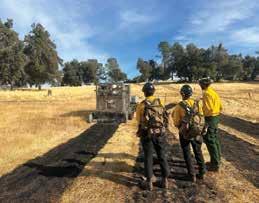
Ignition of the unwanted fuels is done using an array of high-temperature torches while the flames and embers are fully contained within the system to ensure no risk of escape fire.
The high burn temperature in an enclosed chamber creates less smoke than existing methods, many of which use noxious accelerants such as diesel fuel or gasoline.
BurnBot’s RX prescribed fire system protects against destructive wildfire by amplifying workforce capacity to establish fuel breaks, firebreaks, and defensible space.
Founded in 2020 in response
to the devastating Bay Area wildfires, BurnBot emerged from a vision to revolutionize wildfire prevention through innovative technology. Its founders, Dr. Anukool Lakhina and Dr. Waleed Haddad, combined their expertise in computer science and physics to develop groundbreaking solutions for one of our era’s most pressing challenges.
For more information on the technology visit https:// burnbot.com/technology. For photos of the BurnBot in action and examples of the different applications they use the units for, visit their Facebook page.



